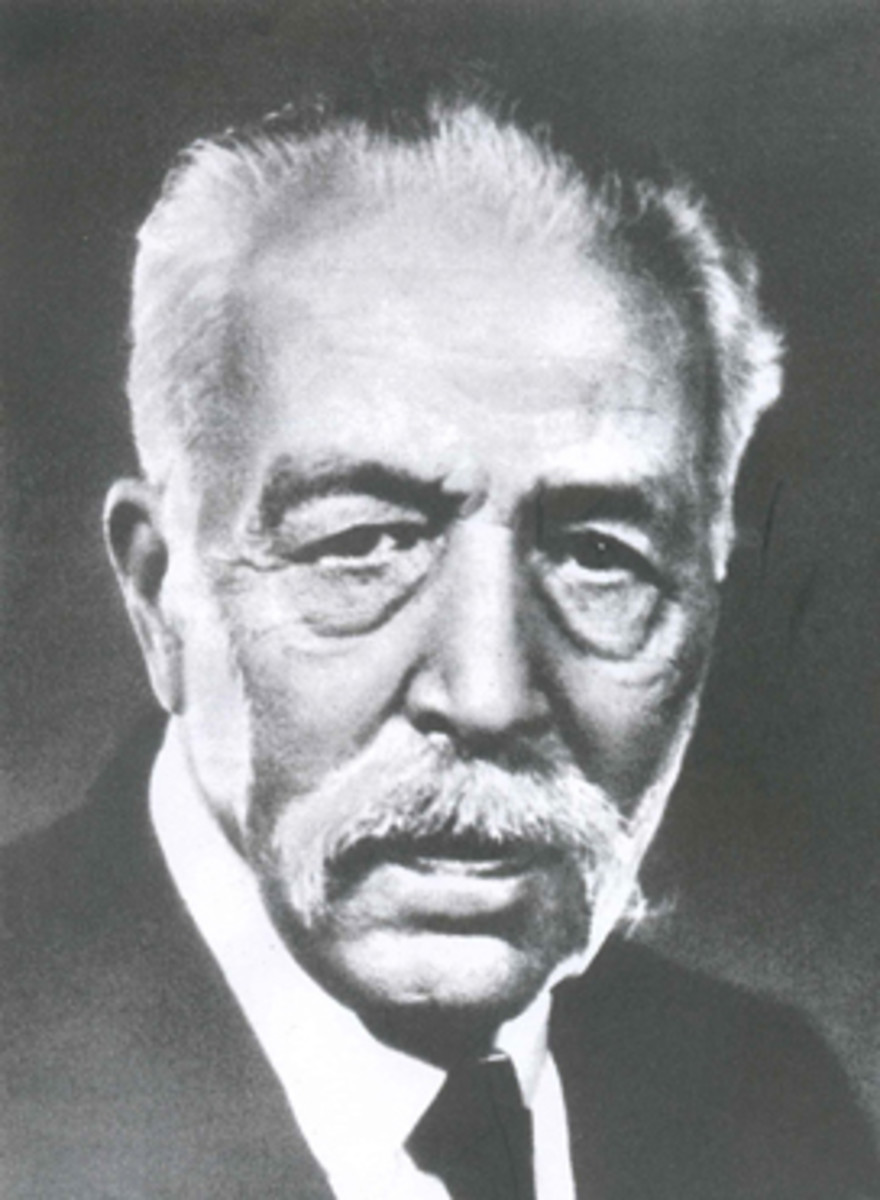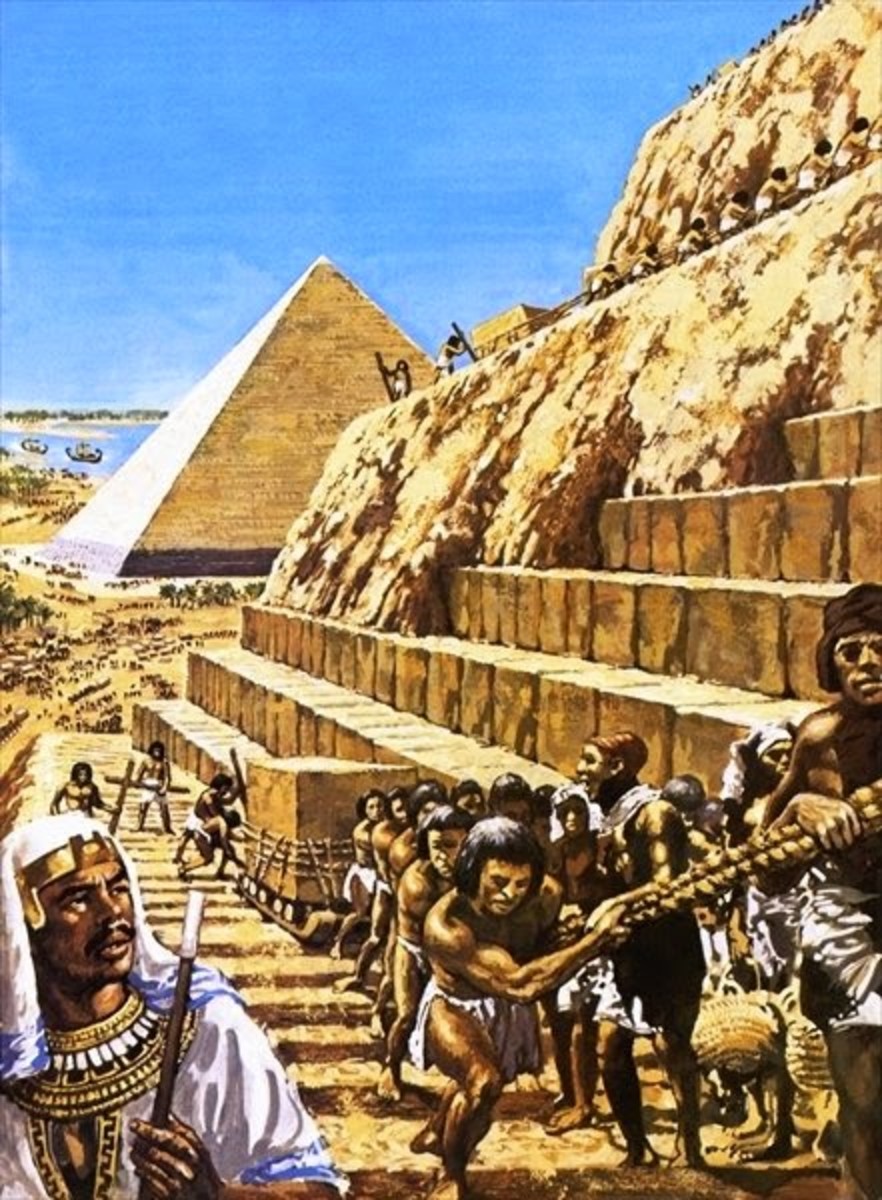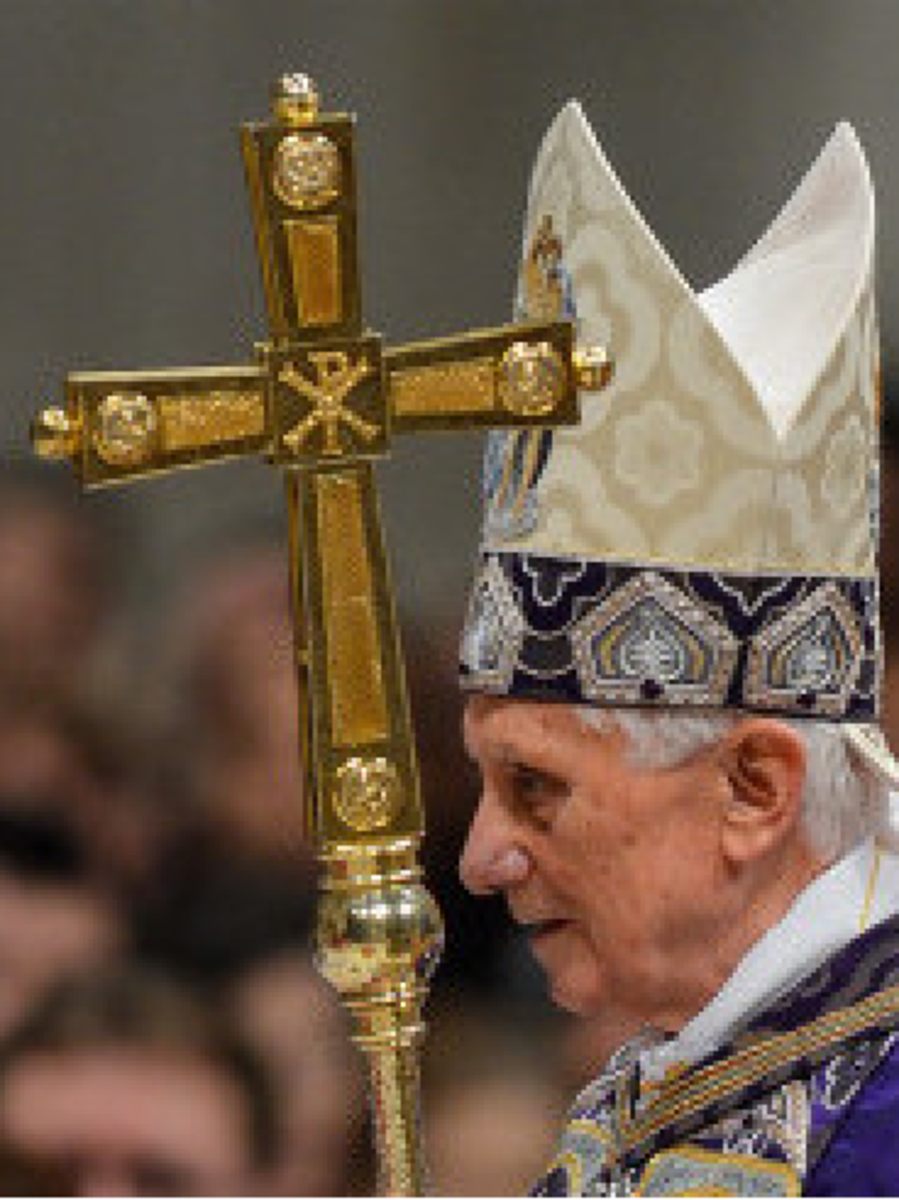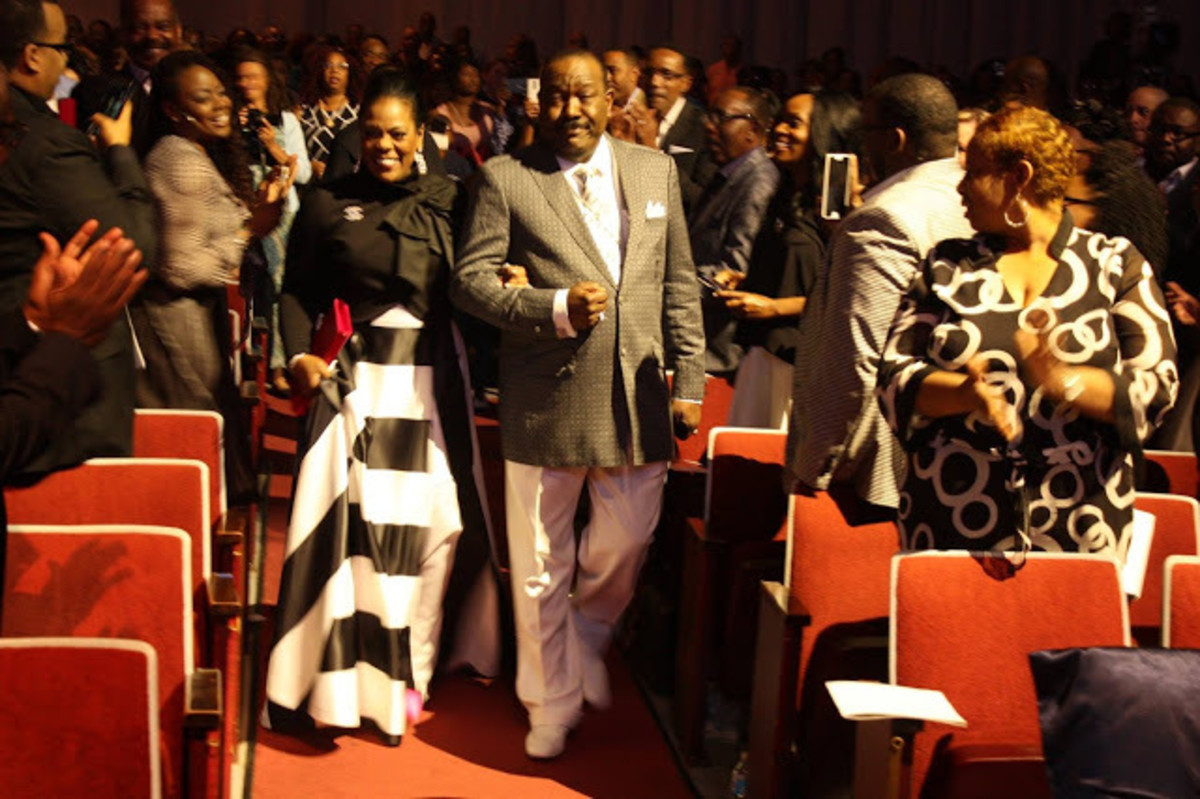Musims and Modernity: Islam and Modern Thought
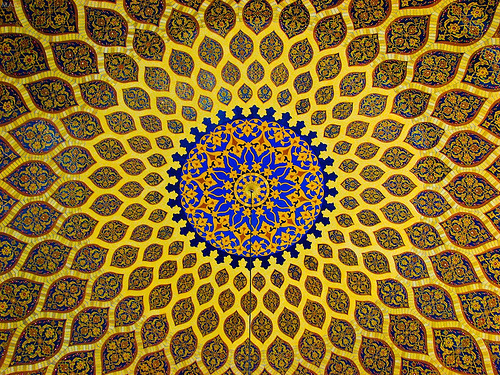
It is the intention of this article to discuss, from both an Islamic and Qur’anic perspective, some of the fundamental issues faced by the Muslim world’s understanding in its adapting to modern thought. This includes possible reasons as to why it is facing such predicaments and an assessment of its overall success in overcoming these difficulties. In doing so, such an article aims to be respectful in its critique, and offers its opinions in a spirit of open dialogue.

The Context of the Situation
The issues facing the Islamic world, with the advent of modernity, are not so unlike those encountered by Western existence prior to the revolutionary event known as the Reformation (16th century).
Before Martin Luther, the Western Catholic conscience was completely subsumed into the Church, severely limiting the progression of human reason. Through the initial ‘liberation’ of the Reformation, the Western world quickly began to reclaim its authority of reason from the static control of the Roman Catholic Church. It almost immediately progressed in the areas of science and humanities; advancements that had proven impossible under the pre-existing circumstances. Through these events, a strong foundation was established for the final push for freedom during the Enlightenment period (18th century).This period in turn, resulted in a public conscience that was better prepared for its emergence into the post-modern world.
Whilst the Western world was exercising its rediscovered power of reason and undergoing significant reform, the Muslim world became a victim to intellectual inertia, and narrowness of its reason. This is seen as mainly due to the captivation of the Muslim scholar with commenting on medieval texts.[1] Instead of progressing their understandings and interpretations of Qur’anic philosophies and jurisprudence, the Muslim conscience had become increasingly ‘obsessed with the past’ and thus began to stagnate. Unfortunately, this produced an Islamic society in which the concept of ‘change’[2] became foreign.This ensuring that when it interacted with modern thought (19th century)[3], it would be caught somewhat unawares with the issues such a progression could bring[4]. It is within this context, explicitly the confrontation between the long-established conservative and more recently introduced modernist positions, that the foundation for many of the complications faced by contemporary Muslims can be found. This is an important thing to remember when initiating any study of Islamic modernity.
[1] Musa Jarullah Bigi, “Why Did The Muslim World Decline While the Civilised World Advanced?,” in Modernist Islam 1840-1940: A Sourcebook, ed. Charles Kurzman (Oxford: OxfordUniversity Press, 2002), 255
[2] A fundamental principle of modernity and modern thought; inescapable for any society that interacts with modern philosophies and ideologies.
[3] Bigi, “Why Did The Muslim World Decline?,” Modernist Islam 1840-1940
[4] Evident in the marginalisation of the Mutazila (a rationalist philosophical group), and the lack of constitutional reform in many Muslim societies prior to the 19th century.

The Position of the Individual
Pivotal to the issue of Muslim modernity is the understanding of the individual, as one principle notion of modernity is the centrality of the individual in many, if not all, aspects of human life[1].
The individual is also seen as central in Islamic understanding. God created humankind to fulfil a role of vice-regency on earth (cf. 2:30); a position of eminent dignity over the rest of creation. Where once the individual was defined as God’s vice-regent only by reference to an explicit social group, with the introduction of Islam the definition was established by faith and direct reference to Allah[2].
Essential to the complete understanding of the Islamic and Qur’anic perspective of the individual, and where the first initial problem with modernity arises, is the concept of ‘duty’[3]. As humankind is appointed as the vice-regents of God, it is understood that individual humans have a responsibility to completely submit their freedom to His divine will. This concept that is repeatedly stressed in the Qur’an (cf. 2:116; 3:19). As such, it is more applicable to understand the freedom of the Islamic individual in terms of ‘privileges’[4]. The structure and function of Islamic religious law (sharia) is consequenly focused on the ‘duty’ of individual citizens, their success/failure in relation to that duty, and their encroaching on ‘privileges’ as bestowed by God.
One manifestation of this understanding is the emphasis on communal unity at the expense of the identity of the ‘individual’. Katerina Delacoura explains this as a “failure to distinguish between atomism and individualism, and to see individual rights and the well being of the community as being complimentary”[5]. She also explains this failure as a violent reaction to the “excessive individualism”[6], as seen in cultures that have more successfully adapted to modern reason.
The modernist development of inherent ‘rights’ of the individual, and their continuity with the well-being of society, are obviously foreign concepts to the Qur’anic text. As such, it would be difficult to incorporate such ideologies into Qur'anic understanding without an educated reinterpretation of Islamic and Qur’anic scripture[7] and reason. However, to be effective such reinterpretation must be instilled with the genuine desire for intellectual revolution[8].
[1] Katerina Delacoura, Islam, Liberalism, & Human Rights, 1st ed. rev. (London: I.B. Tauris, 2003), 66
[2] Delacoura, Islam & Human Rights, 44
[3] Delacoura, Islam & Human Rights, 43
[4] Delacoura, Islam & Human Rights, 44
[5] Delacoura, Islam & Human Rights, 57
[6] Delacoura, Islam & Human Rights, 57
[7] Muslim intellectual confusion coming from an extremely literal understanding of Qur’anic word.
[8 ] A.S. Sidahmed, “Sudan: Ideology & Pragmatism,” in Islamic Fundamentalism, ed. A.S. Sidahmed et al. (Boulder: Westview Press, 1996), 189
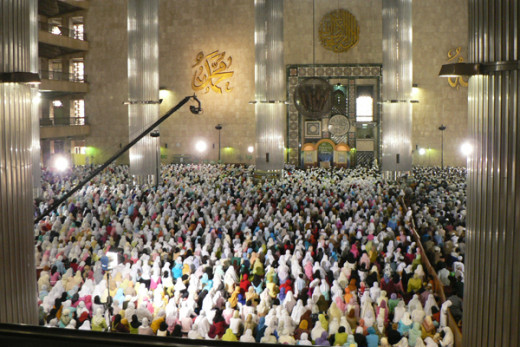
The Relationship Between Authority and Society
Another essential aspect of Muslim modernity is the relationship between authority and society. Democracy can be viewed as a common result of modernity - a consequence of the emphasis on individualism inherent in the character of modern thought.
In a modern society, the importance of the individual has, more often than not, led to the establishment of a government understood to be representative of the collection of individuals (society) that has chosen them. The Islamic and Qur’anic understandings, however, view the position of ‘ruler of the people’, their responsibilities and limitations, in a somewhat different light.
The leader of the Islamic society is illustrated in the Qur’an as being somewhat of a sacred guide for their subjects (65:11). This leader is considered the enjoiner of a sacred pact between themselves, God, and the community that they govern. Due to this divinely elevated position, the ‘ruler’ is bound by the responsibility of ensuring the spiritual security of their subjects in this world and the afterlife. This is achieved by prescribing, enforcing, and following the principles of the “Islamic order”.[1]
Having said this, however, it is important to note that at no time does the Qur’an suggest the infallibility, or divinity, of such rulers. It is also explicit that the ruler of an Islamic community is to be fair, just, and accessible to their people in guiding them towards the correct way of life, “…Therefore, pardon their abuses, seek (God’s) forgiveness for them, and consult them in the affair. Once you have resolved on a course of action (be decisive) and trust in God. Surely God loves those who trust in Him” (3:159).
Unfortunately, at the same time the Qur’an and Hadith also fail to supply a guide of how to dispose of rogue rulers[2]. Such rulers become corrupt, megalomaniacal, and begin to disservice the spiritual wellbeing of the community. Subsequently, due to the close relationship between sharia and scriptural reference, no enterprise has ever been initiated into the establishment of any structure to ensure the enforcement of this Qur’anic principle. This has led to an increased risk, occurrence, and acceptance of such rulers in Islamic societies.
The modern democratic concept of rulers being accountable to their people for their decisions and actions is another foreign notion to the Islamic and Qur’anic understanding of the world. In an Islamic society, the people are to be subjugated to the judgement of their ruler, who is only answerable to God. This places the traditional Qur’anic view of authority in direct opposition to modernistic thought and it would be difficult to reconcile the two. However, there is some room for the incorporation of liberalism, as such vassals are only “obligated to obey the good”[3]
[1] As stipulated by God in the Qur’anic text revealed to the Prophet Muhammad.
[2] Delacoura, Islam & Human Rights, 45
[3] James P. Piscatori, “Human Rights in Islamic Political Culture,” in The Moral Imperatives of Human Rights: A World Survey, ed. Kenneth W. Thompson (Washington, DC: University Press of America, 1980), 143
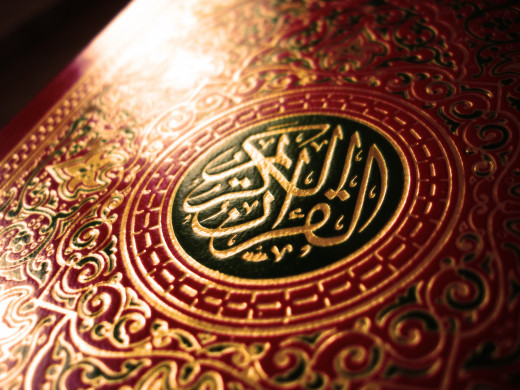
The Historicity of the Qur'an
The ‘historicity’ of the Qur’an refers to the understanding of the historical context of Qur’anic meaning. This includes whether the text can be interpreted as constantly relevant, and beneficial, to humankind, or if it requires further understanding in order to be coherent to their needs and conducive to their well-being.
This is perhaps one of the most integral factors to consider in the assessment of Muslim modernity as it underlies many, if not all, Qur’anic principles that affect the daily lives of ordinary Muslims; including those mentioned above. A clear example of this circumstance is traditional sharia law as being implemented via ‘sola scriptura’[1], and the debate of judicial evolution that lies therein[2]. Two significant approaches to the debate of historicity are the ‘textualist’ and the ‘contextualist’ positions.
The textualist approach is considered to be the largely dominant method of Qur’anic exegesis, from the pre-modern era until now.[3] Scholars that prescribe to this position tend to base their interpretations on literal linguistic scriptural analysis, and adamantly undermine, even reject, the effect the socio-historic circumstances of humanity can have on the language, understandings and applications of scriptural meaning. For the textualist, the language of the Qur’anic text contains “concrete and unchanging references”[4], its meaning rendered static. As such, textualist scholars prove to be anti-humanistic, contesting that it is the duty of the Muslim to conform to the rigidity of literal Qur’anic meaning. This is because the Qur’an is regarded as a strict set of unchangeable laws established by God (4:82; 10:37-38) to ensure the well-being of humanity. This position clearly denies the possibility of any evolution of Islamic society, placing it in direct opposition to modern humanistic thought.
Qur’anic contextualism however, seems to be somewhat more adaptable to modern ideology. This form of exegesis acknowledges Qur’anic language, understanding, and application as subject to the socio-historical, and linguistic, contexts of the Prophet Muhammad’s lifetime in which it was revealed, and the subsequent socio-historical contexts in which it is received[5]. Scholars that prescribe to this opinion argue in favor of the strong influence the socio-historical circumstances of the Prophet Muhammad’s community had on the revelation itself. Not that they argue the Qur’an is anyone else’s words but God’s, instead they hold that the language of, and need for, revelation is dependent on the circumstances in which it was revealed[6]. The impossibility of any interpreter of the Qur’an to arrive at a completely objective understanding of its meaning is also put forward[7], according to the inescapable influence of personal and societal values, beliefs, and experiences. In this context, the Qur’an is not seen as a book of laws, rather it is taken as a collection of divinely established principles, values, and ideas[8]. As such, the contextualist approaches the Qur’anic text with the ardent belief that the meaning held within must be interpreted and reinterpreted throughout human history in order for it to remain relevant to the Muslim communities its purpose is to guide. This approach is a clear example of the adoption of the humanist ideology at the heart of modernity, with the authoritative role of the individual (the reader), and their societies, in the understanding and application of Qur’anic principles. This is in direct contrast to the textualist approach, which subjugates these roles to the authority of the literal scriptural text. Although still in the minority, the contextualist position is becoming increasingly evident in Islamic thought[9].
The issue of historicity poses many questions for the modern Muslim community. How exactly does God wish the Muslims to live in the modern context? Should they attempt to recreate the societal circumstances of the Prophet Muhammad’s lifetime[10], or can they live in a society that is accepting of modern influence whilst still living within the boundaries of His Word? What role does the reader of scriptural texts play in their interpretation and application? What does this mean for the establishment of a fully-functional and authentic modern Islamic identity?
[1] Scripture as the most authoritative legal source as it is the direct Word of God.
[2] The traditional view is that laws as derived from scripture are fixed and permanent, as per their origin. Therefore, they are seen as only alterable via a reinterpretation and reapplication of the scripture, not through judicial precedent or governmental legislation.
[3] Abdullah Saeed, The Qur’an: An Introduction (Abingdon: Routledge, 2008), 220
[4] Saeed, The Qur’an, 220
[5] Saeed, The Qur’an, 221
[6] For example, the teachings relating to the hadd punishments. These are corporal punishments prescribed by the Qur’an to be carried out in retaliation to ‘crimes against God’, such as unlawful sexual intercourse (24:2), false accusations (24:4), and theft (5:39).
[7] Farid Esack, Qur’an, Liberation & Pluralism (Oxford: Oneworld, 1997), 73-77
[8] Saeed, The Qur’an, 221
[9] see the works of Fazlur Rahman and khaled Abou El Fadl.
[10]Clinton Bennett, Muslims and Modernity (London: Continuum, 2005), 18-23
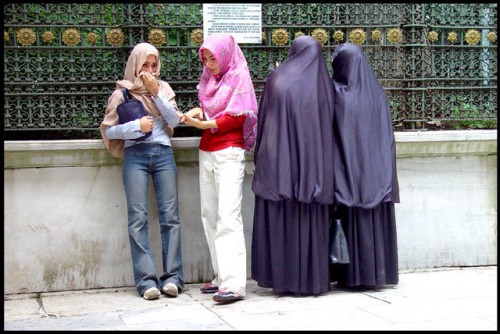
A Truly Modern Islamic Identity?
The ongoing issues mentioned in this article are particularly relevant to the success of the Muslim community, and Islam in general, of adapting to what has proven to be the quite confronting viewpoints of modernity. Accordingly, I purpose that the flexibility and adaptiveness of Islam, and Islamic societies, with regard to the consideration of these issues can be taken as markers for their overall success in adapting to modernity.[1] This is not to assert that the adjustment to modernity be at the compromise of the fundamental integrity of Islam, or its respective communities. Rather, it is my opinion that a truly effective Islam provides a strong framework within which to complete the process of modern evolution; to establish a balanced relationship between traditional values and modern developments.
Unfortunately, the content, and language, of both conservative and progressive contemporary literature[2] and the present position of much authoritative Islam[3] are symptomatic of the fact that there is not, as of yet, a fully-functional modern Muslim understanding, or identity. It is possible to attribute this to the well-established Islamic understanding of individualistic modern views as combative to the communal spiritual well-being of the Islamic community, and the fundamental principles held therein.
However, the possibility of Islam one day achieving a sufficiently functional level of reconciliation between its understanding of the Qur’an, itself, and modernity is a promising one. The increasingly conciliatory approach of Muslim scholars towards modern implications for the Qur’anic text provides solid foundation, and essential impetus, to the common Muslim’s realisation of the need for an adaptable faith in order to effectively interact with the modern face of the global community.
The increasing need of the modern Muslim for a faith that can provide a true answer to any question thrown at it by the ever-changing motivations of modern society has been acknowledged as one that cannot be ignored. It is the responsibility of Western scholars to assist with, and Muslim scholars to be receptive to, the capability to Islam to encompass a vast variety of interpretations that ensure the betterment of humanity in the modern world if a truly modern Muslim, and Islamic, identity is to be enjoyed.
[1] This argument also relates to issues that arise from the modern consideration of conservatively understood Qur’anic principles; such as the Islamic attitude towards women (4:34-35), non-Muslims (freedom of religion) (5:51), and freedom of conscience (2:217).
[2] The conservative position promotes a return to the literal meaning of the Qur’an, and the complete opposition to any form of modern thought, through evasive and distorted language. The progressive position is not without its own failings however, proving to also be hesitant to confront the issues presented by a consideration of the ‘other side’.
[3] Apparent in the hostile reactions of governmental and religious officials, such as the Foreign Minister of Iran (Ali Akbar Velayati) in 1993.
References
- Bennett, Clinton. Muslims and ModernityLondon: Continuum, 2005.
- Musa Jarullah Bigi. “Why Did The Muslim World Decline While the Civilised World Advanced?,” in Modernist Islam 1840-1940: A Sourcebook, ed. Charles Kurzman Oxford: OxfordUniversity Press, 2002.
- Delacoura, Katerina. Liberalism, & Human Rights, 1st ed. rev. London: I.B. Tauris, 2003.
- Esack, Farid. Qur’an, Liberation & PluralismOxford: Oneworld, 1997.
- Piscatori, James P. “Human Rights in Islamic Political Culture,” in The Moral Imperatives of Human Rights: A World Survey, ed. Kenneth W. Thompson Washington, DC: University Press of America, 1980.
- Saeed, Abdullah. Qur’an: An Introduction Abingdon: Routledge, 2008.
- Sidahmed, A.S. “Sudan: Ideology & Pragmatism,” in Islamic Fundamentalism, ed. A.S. Sidahmed et al. Boulder: Westview Press, 1996




